Magellan: At the Gates of Death, Part I: The Red Gate I, 0 (1976)
Género :
Tiempo de ejecución : 5M
Director : Hollis Frampton
Sinopsis
A short film by Hollis Frampton.
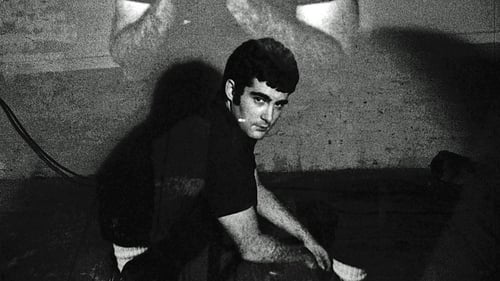
In this "fourteen-part drill for the camera," Frampton created a portrait gallery of his art-world friends engaging in a variety of ordinary activities.

Todo empieza cuando el presidente de los Estados Unidos y el primer ministro británico deciden iniciar una guerra. No todo el mundo cree que sea una buena idea. Pero cuando Simon Foster, el secretario de Estado británico, respalda accidentalmente la guerra en horario de máxima audiencia en la televisión, se gana sin quererlo muchos amigos en Washington DC.

Una vez más, Rahmat es asignado para un trabajo que le lleva a viajar a varias islas, algo que lleva muchos años haciendo. Se le pide que recoja las lágrimas de los habitantes de esas islas. Aunque hace tiempo que esa gente entrega sus lágrimas a Rahmat, nadie sabe concretamente qué ha estado haciendo con esas lágrimas.

For Hussein, a pizza delivery driver, the imbalance of the social system is thrown in his face wherever he turns. One day when his friend, Ali, shows him the contents of a lost purse, Hussein discovers a receipt of payment and cannot believe the large sum of money someone spent to purchase an expensive necklace. He knows that his pitiful salary will never be enough to afford such luxury. Hussein receives yet another blow when he and Ali are denied entry to an uptown jewelry store because of their appearance. His job allows him a full view of the contrast between rich and poor. He motorbikes every evening to neighborhoods he will never live in, for a closer look at what goes on behind closed doors. But one night, Hussein tastes the luxurious life, before his deep feelings of humiliation push him over the edge.
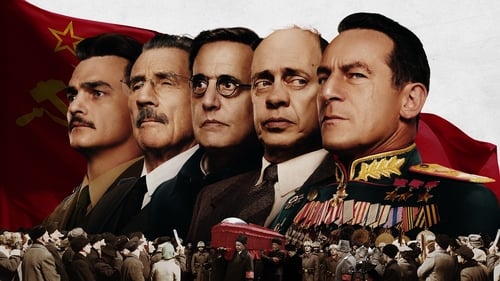
La noche del 2 de marzo de 1953 murió un hombre. Ese hombre es Josef Stalin, dictador, tirano, carnicero y Secretario General de la URSS. Y si juegas tus cartas bien, el puesto ahora puede ser tuyo. Una sátira sobre los días previos al funeral del padre de la nación. Dos jornadas de duras peleas por el poder absoluto a través de manipulaciones, lujurias y traiciones.
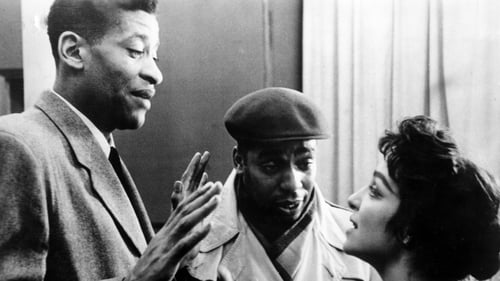
Años 60 en la ciudad de Nueva York. Lelia y Tony son una feliz pareja. Un día conoce al hermano de su novia y descubre que ambos son de raza negra, aunque ella no lo parezca. Película fundamental dentro de la evolución del cine, al ser considerada el origen del cine independiente estadounidense. "Sombras" fue el debut como director del hasta entonces actor John Cassavetes. La película fue filmada en la calle, con actores desconocidos, una cámara de 16 milímetros en mano y una escasa subvención pública de 40.000 dólares. "Sombras" está rodada con asfixiantes primeros planos de unos actores que resultan desgarradores por su naturalidad, ya que, además, hacen de ellos mismos. Cassavetes fue uno de los primeros directores en mostrar los ambientes intelectuales y bohemios de Nueva York a través de un tema, las relaciones interraciales, muy poco habitual en el cine de finales de los 50.

Agnes, una adolescente solitaria, y su padre se hacen amigos de un preso fugado, llamado Joseph, que llega a su granja en Bretaña, Francia. Cuando Joseph comienza a sentirse atraído por Agnes, su padre amenaza con romper la unión.
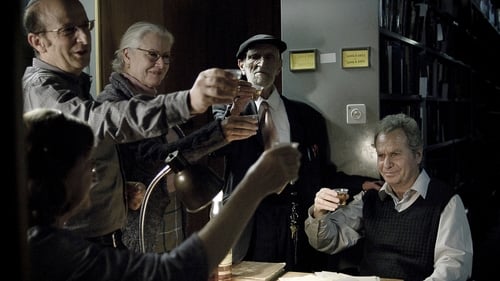
Jerusalén, Israel. Los profesores Eliezer y Uriel Shkolnik, padre e hijo, han dedicado sus vidas al estudio de las escrituras judías. Eliezer es un erudito testarudo y metódico que nunca ha sido reconocido por su trabajo; Uriel es una estrella en ascenso, alguien admirado y alabado por sus colegas. El frágil equilibrio que ha mantenido casi intacta su relación personal se quiebra de forma inesperada debido a una simple llamada telefónica.
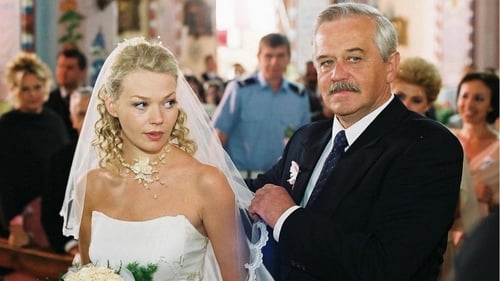
Wojnar is a wealthy man who is marrying off his beautiful daughter Kasia, in a small town in present day Poland. Wojnar had to bribe the groom with a fancy car, since Kasia was pregnant by another man. At the end of the ceremony, the car is delivered by a gangster, who immediately demands the promised money and the deed to land from Kasia's grandfather. Unfortunately grandpa is unwilling to let go of the land. Meanwhile each of the workers at the reception demand to be paid, so Wojnar, who is very reluctant to part with his money, tries to haggle and bribe his way out of all the situations.
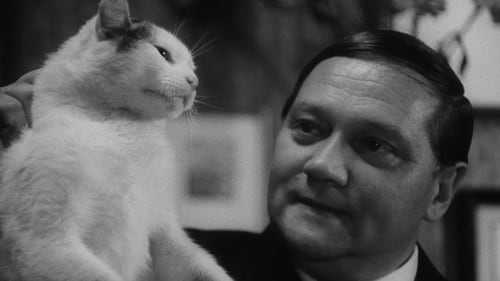
El señor Karel domina a sus familiares, amigos y empleados. Sólo está preocupado porque el tránsito de los difuntos hacia el más allá sea lo más limpio y rápido posible, todo mediante la incineración de cadáveres en el cementerio que regenta. (FILMAFFINITY)

Julie Delpy dirige, protagoniza, produce y escribe la música de su ópera prima. Marion (Delpy), una fotógrafa francesa, decide llevar a Jack, su novio americano (Adam Goldberg), de visita a París con la esperanza de que la relación adquiera algo de romanticismo. Pero los pesadísimos padres de Marion, sus ex novios y la obsesión de Jack por fotografiar cada monumento funerario de la ciudad no facilitarán mucho las cosas.

A documentary covering the 1998 Olympic Games in Nagano, filmed for IMAX presentations.

A fantasy biography of Franz Kafka, bringing to life the writer's diaries and photographs.
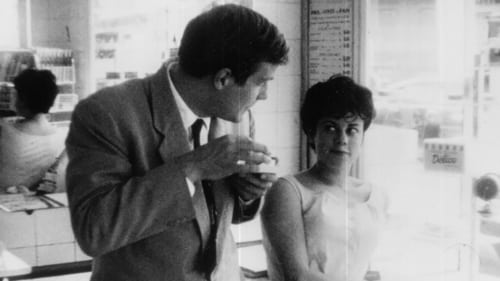
Mediometraje que narra la historia de un estudiante de derecho que se siente atraído por la joven Syvie, con la que se cruza a menudo por la calle. Aconsejado por un amigo, fuerza un encuentro fortuito para abordarla. Sylvie acepta la invitación, pero dice tener prisa y propone posponer la cita para otro día. Pasa el tiempo, y mientras el joven intenta en vano volver a ver a la joven, conoce a otra muchacha, una panadera.

Cut-outs of war machines and the figure of Napoleon – contributors to an anti-war theme – encounter abstract shapes, line drawings, old-master landscapes, short bursts of ‘real-time’ landscapes and shakily photographed gestural watercolors. … ‘a synthesis of all previous techniques.’

Benjamin is at war: with life, with adults, with himself. From his earliest childhood onwards, the 13-year old has been shunted from one care home to another. When his mother has to go to prison, he is sent to his father, whom he has never known. The man turns out to be a dead loss, a warehouseman who's given up on life, a man in his mid-40s who still lives with his Moroccan parents in a high-rise block in the banlieue. Benjamin's turbulence and violence soon prove too much for his new family.

Poetic Justice presents the viewer with an ordinary domestic scene: a stack of papers, a cup of coffee, and a potted cactus on a table. The sheets of paper compose a script that provides handwritten, frame-by-frame instructions for a film that unfolds only in the mind of the viewer.

In Capitalism: Slavery, Jacobs uses a Victorian stereograph (a double-photograph) of slaves picking cotton under the watchful eye of a white overseer as the source for this wrenching silent work. Through digital manipulation, Jacobs creates a haunting illusion of depth and movement. It is as if he has "entered" the image and reactivated this historical moment; he moves among the figures and isolates individuals, creating a stuttering, pulsing effect that suggests motion even as it animates stasis.

Shot at 2,000 frames per second, this short shows a man exhaling smoke in incredibly slow motion.

A camera records the last moments in the life of a seagull on a polluted beach.















